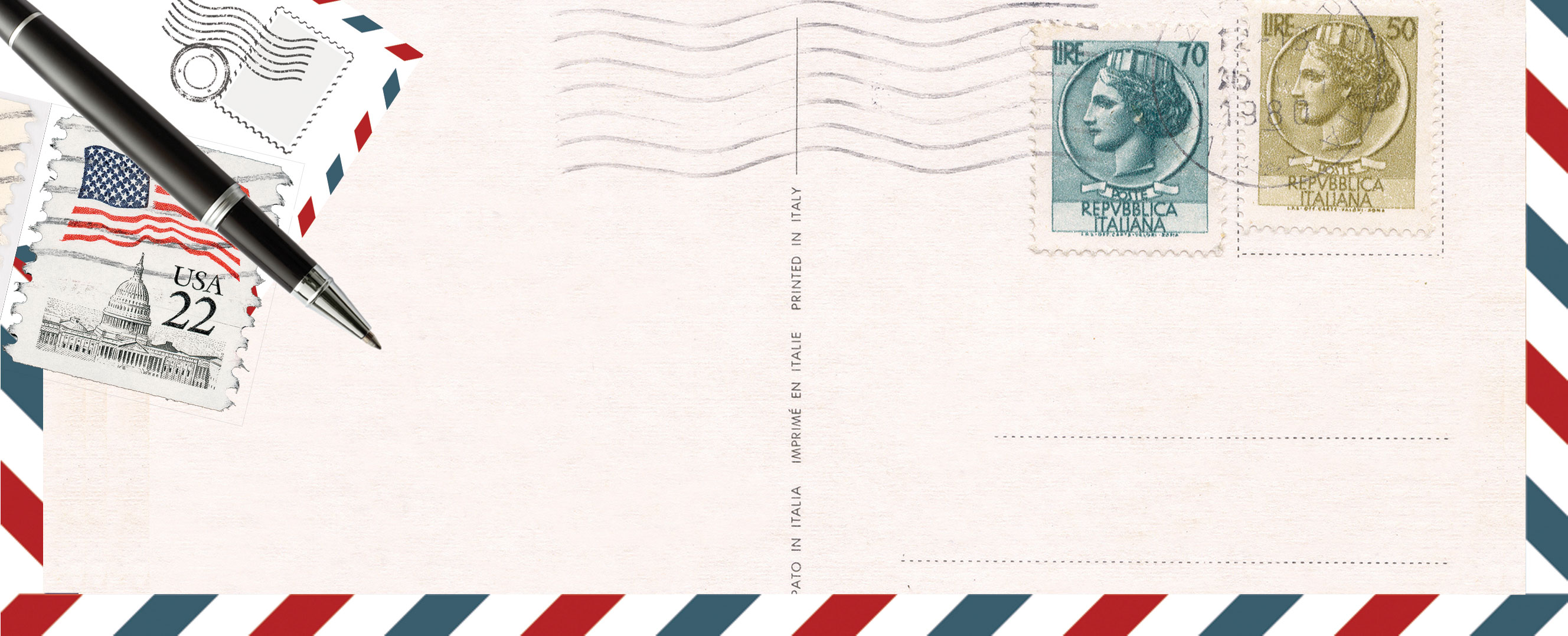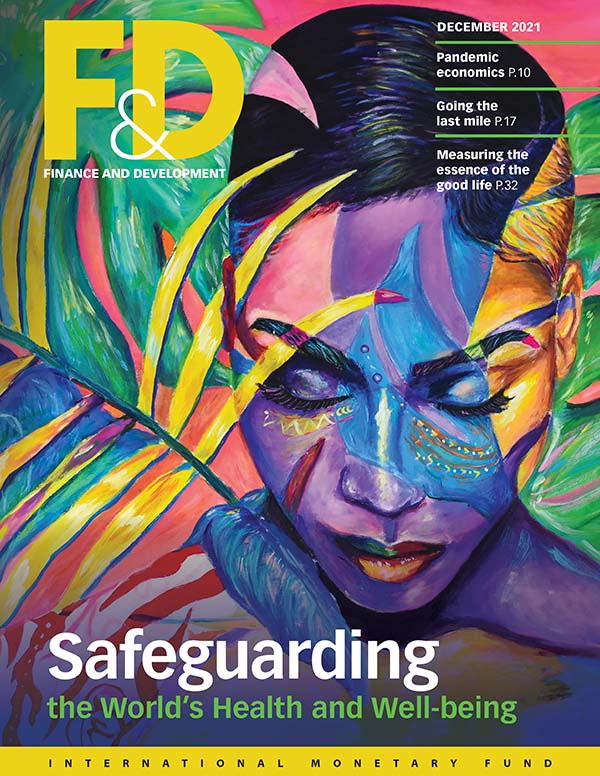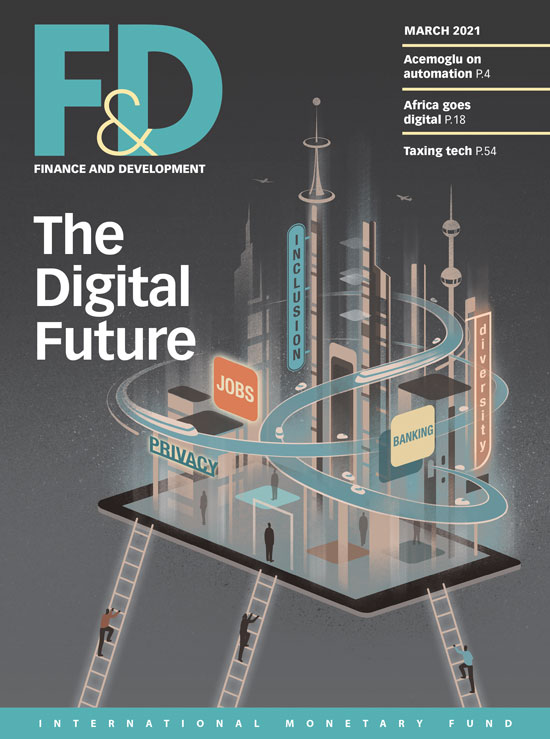An IMF economist explains central bank digital currency to his mother
Washington, DC, March 2021
My dear mother,
I hope this letter finds you well, back in Italy. We are fortunate to have just visited; now we’ll go back to seeing each other on screen for a few months. Still, how far we’ve come since the immigrants of the last century who could only write letters—and hope they would eventually arrive. And yet, as I unpacked, I found remnants of our visit: euro notes, unused from my trip and now souvenirs of my stay. If only I could send them back as easily as I can call you. It might not be long before this is possible.
The cash you spend at the market may one day be replaced by a central bank digital currency. Yes, the stuff I work on at the IMF, which you always ask about and we never find time to discuss.

Tuscany landscape seen from the walls of Montepulciano, Italy
I know you like the security of cash, the tangible feeling of holding a new banknote. It helps you manage your spending and reminds you of being part of a monetary union with shared values and a commitment to price stability.
But remember that time your wallet was stolen? Cash isn’t very safe. Plus, you have to make a detour to withdraw cash from the bank, after the nearby branch closed. Since the start of the pandemic, fewer stores accept cash because of health concerns. Even the baker did us a favor the other day—do you remember? But next time he may not have change for your €50.
You call me “the American” when I pull out my cards. Indeed, here it’s all I use; I find it so much easier to pay!
But not everyone will agree. People without bank accounts rely on cash even more than you. If it disappears, what will happen to them?
They may one day use central bank digital currency. Think of it as a digital form of cash that you can hold on your phone, in an app called a digital wallet, a bit like the one we use to send messages to each other. You could transfer money there from your bank account, or simply hold balances you receive from others. Instead of sending you a picture via phone, I could send you those euros I didn’t spend.
Well, to the extent I could hold a digital wallet in euros. I would probably have to register for one and provide my passport and other information. Not for the state to snoop on me, but to make sure money doesn’t go to the wrong people, like a terrorist group. No, don’t worry mother, I don’t know any. Besides you, to whom would I send money anyhow?!
In any case, these privacy concerns are very important. Cash offers anonymity. Had we eaten our cakes on the way home from the bakery, no one would have known we had purchased them. To what extent will countries allow spending in digital currency to be anonymous is an open question. Perhaps you’ll get away with it when buying cake, but not a new car.
You may smile as you read this and think I have gotten carried away—that this whole thing will only exist in sci-fi movies. Not at all. The Bahamas already has a central bank digital currency. And many other countries are testing or investigating them. If you ask me, it’s a question of when, not if.
The potential advantages are considerable. Some countries want to lower costs of handling cash, especially across vast territories or multiple islands. Some are keen to improve financial inclusion, so those without bank accounts still have access to a means of payment as cash use diminishes. For many, payments are the first step to accessing other financial services like savings accounts and loans.
Some central banks are concerned that their payment systems are increasingly dominated by a few large, and often foreign, companies. So they aim to offer an attractive domestic alternative, that would also serve as a backup and induce the private sector to offer efficient services at low cost.
Think of innovation too—a new digital currency may be like a personal computer or a smartphone, spurring the development of new innovative services and applications.
Despite these advantages, central banks are proceeding cautiously, and rightly so. Payments are systemically important. They can’t go wrong, crash, be subject to cyberattacks, or be used by criminals to launder money or finance terrorism.
There are other risks too. Perhaps the most important is related to bank funding. What if you decided to withdraw your savings from the local bank and hold only central bank digital currency? I know, you’ve grown suspicious of big banks since the last crisis. But banks are important to channel your savings to finance someone else’s project. Maybe our baker friend needs a loan to get a new oven. So it’s important to find ways to limit vast or sharp shifts away from bank deposits. Some central banks may impose fees if you hold more than a certain amount of digital currency—we’ll see.
Similarly, people may choose to hold a digital currency issued by a foreign central bank, if it is deemed safer, more stable, or perhaps more efficient and easier to use. That would be a problem for the domestic banking system and for central banks trying to steer their economy through interest rates on assets in domestic currency. So central banks may have to find ways to manage cross-border flows in and out of digital currencies. That’s a big open issue we’re working on.
Finally, the credibility of central banks might be at risk, and the demands on them will be significant. Can you imagine a central bank becoming more like a software company, constantly needing to remain on the cutting edge of technology and serve diverse and rapidly evolving user needs?
Fortunately, central banks don’t need to do it alone. The private sector can partner with them to extend the functionality of digital currencies. For instance, a private firm could allow you to send money to a phone number in your address book (yours, Mother, is the first in my book), which is linked behind the scenes to a verified user identity. Private firms may also design the digital wallets to hold official digital currencies, and could even create their own digital currencies, though fully backed and supervised by the central bank (unlike many of those crypto coins out there).
But don’t worry too much about those technical details; that’s my job. You will just want to know that you’re using a safe, stable, and efficient means of payment.
Now you know what I’m up to, and why I’m so excited about my work. Then again, I know you’ll insist on paying for cake next time we meet—probably with a crisp paper note!
Very sincerely yours,
Tommaso
Opinions expressed in articles and other materials are those of the authors; they do not necessarily represent the views of the IMF and its Executive Board, or IMF policy.









